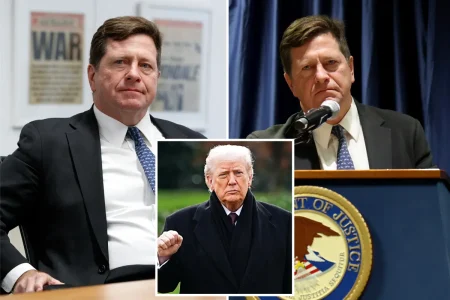Prime Minister’s Antisemitism Pledge Faces Gaza War Complications
In a bold declaration that defined the early days of their leadership, the prime minister made a solemn vow to cleanse the Labour Party of antisemitism, a problem that had plagued the organization and damaged its reputation with Jewish communities. This pledge represented more than just political housekeeping—it was positioned as a moral imperative and a return to core Labour values of equality and respect. The commitment came after a difficult period when accusations of antisemitism had become increasingly prominent within party ranks, leading to investigations, suspensions, and a general erosion of trust between Labour and Jewish voters. The prime minister’s promise was unequivocal: antisemitism would not be tolerated, procedures would be strengthened, and the party would rebuild its relationship with Jewish communities through concrete actions rather than mere words.
However, the landscape has dramatically shifted with the outbreak of war in Gaza, creating a complex political reality that has tested this commitment in ways few could have anticipated. As images of civilian casualties and humanitarian suffering in Gaza flood media channels, many Labour activists and supporters have expressed increasingly vocal opposition to Israel’s military actions. This has created a challenging dynamic where criticism of Israeli government policy—which many consider legitimate political discourse—sometimes blurs with rhetoric that Jewish communities and organizations identify as antisemitic. Party leadership now finds itself walking a precarious tightrope: maintaining their commitment to fight antisemitism while acknowledging the passionate concerns many members have about the humanitarian situation in Gaza. This balancing act occurs against a backdrop of protests, internal party debates, and heightened emotions that make dispassionate policy discussions increasingly difficult.
The tension has manifested in numerous ways within the party structure. Local Labour meetings have become contentious as activists demand stronger condemnation of Israel’s actions in Gaza, while others raise concerns about antisemitic tropes entering these discussions. Social media has amplified these divisions, with party members expressing frustration when criticism of Israel is perceived as being unfairly labeled antisemitic, while Jewish members report feeling increasingly uncomfortable with the rhetoric employed by some Gaza protesters. Several local councillors and prominent activists have resigned or faced disciplinary measures over statements regarding the conflict, further highlighting the difficulties in navigating this terrain. The party leadership has attempted to establish clear guidelines on appropriate discourse, but defining the boundaries between legitimate criticism of Israeli government actions and antisemitic rhetoric has proven extraordinarily challenging.
This situation reflects broader societal tensions rather than issues unique to the Labour Party. Across universities, community organizations, and public spaces, similar debates are unfolding about how to discuss the Gaza conflict without veering into antisemitism. For the Labour Party specifically, the challenge is heightened by its historical connection to both Jewish communities and to anti-colonial and human rights movements. Many party members see their advocacy for Palestinian rights as consistent with Labour’s traditional support for oppressed peoples worldwide, while simultaneously rejecting antisemitism in all forms. The leadership’s attempts to articulate nuanced positions—supporting Israel’s right to self-defense while condemning civilian casualties, or criticizing specific Israeli government policies while opposing blanket boycotts—have satisfied neither those most passionate about Palestinian rights nor those most concerned about rising antisemitism.
Beyond the immediate political challenges, the situation has revealed deeper questions about identity, solidarity, and the meaning of progressive politics in an increasingly polarized world. Young Labour activists in particular have grown frustrated with what they perceive as the leadership’s insufficient response to the humanitarian crisis, while older members often express concern about a return to the factional conflicts that undermined the party’s electoral prospects in recent years. Jewish Labour members have reported varying experiences—some feel supported by leadership’s commitment to fighting antisemitism, while others worry that legitimate concerns about antisemitism are being weaponized to silence criticism of Israel. Palestinian and Muslim Labour members similarly report mixed experiences, with some feeling their perspectives are marginalized in internal party discussions about the conflict. These tensions reflect fundamental questions about whose pain is acknowledged, whose security concerns are prioritized, and how a progressive party should respond to complex international conflicts.
Despite these challenges, efforts continue to find common ground and uphold the commitment against antisemitism while addressing humanitarian concerns. Educational initiatives within the party have sought to help members recognize antisemitic tropes and language while still allowing for robust debate on Middle East policy. Jewish and Palestinian members have created dialogue spaces to share perspectives and develop mutual understanding. The leadership has maintained that opposing antisemitism and advocating for Palestinian human rights are not mutually exclusive positions, though translating this principle into practical policy and disciplinary decisions remains difficult. As the conflict in Gaza continues to evolve, the Labour Party’s response will likely remain a work in progress—balancing multiple competing imperatives and attempting to forge a path that upholds anti-racist principles while acknowledging the passionate advocacy many members feel for those suffering in the conflict. The ultimate success of the prime minister’s original vow will depend not just on formal policies, but on the party’s ability to navigate these tensions with both moral clarity and compassionate understanding of different perspectives within its broad coalition.










